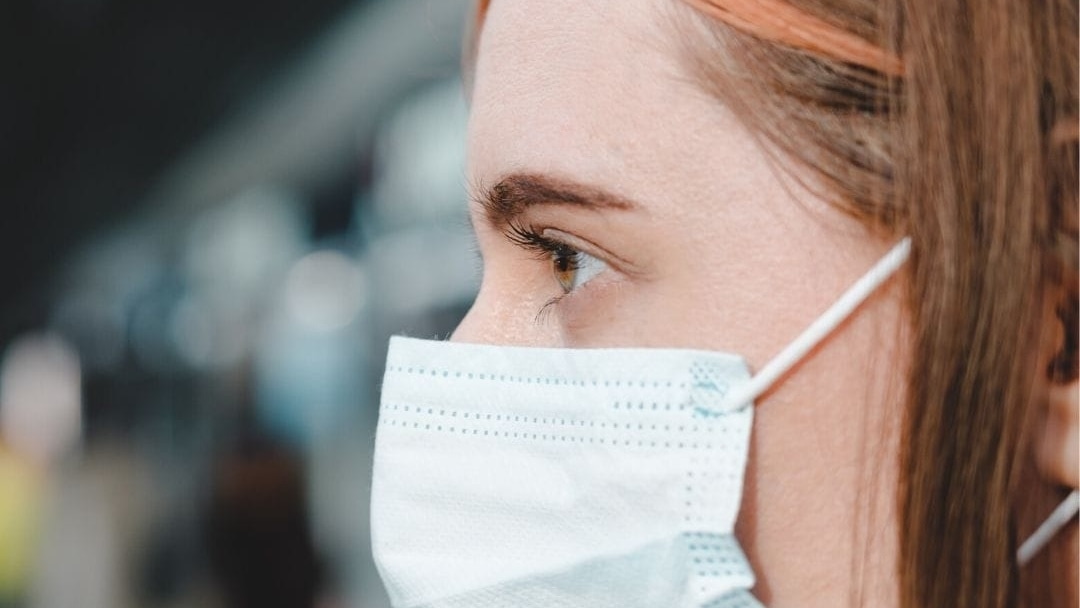When there is a sickness making the rounds, it’s a good idea to take extra steps to boost your body’s capabilities with these immune system boosters, especially in the winter months.
You’ll want to follow these suggestions regularly in normal conditions, but if there’s a contagious virus around, you’ll want to make sure that you’re following as many of these ideas as possible on a consistent basis to optimize your immune system.
Reduce Stress
What is commonly thought of as stress goes beyond emotional stress. The total load theory posited by Patricia Lemer states that many other things can add stress to the body. Stress can result from:
- Emotional stress:
- Emotional trauma
- Worries and fears
- Family issues
- Unrealistic expectations
- Past failure
- Lack of faith and spiritual support
- Physical stress:
- Physical trauma
- Lack of movement
- Unintegrated (retained) primitive reflexes
- Vision issues
- Poor auditory processing
- Educational stress:
- Inappropriate curriculum
- Infrequent PE and recess
- Bullying
- Safety issues
- Overcrowding
- Non-ergonomic furniture
- Behavioral stress:
- Medication
- Too much screen time
- Nature deficit
- Poor organizational skills
- Apathy
- Environmental stress:
- Biological stress:
- Dehydration
- Poor diet
- Nutritional deficiencies
- Allergies
- Toxicity
- Sleep deprivation
To learn more about which specific things may be contributing to your child’s total load of stressors and ways to reduce them, take our CHIRPTM (Child Health Inventory for Resilience and Prevention) survey for children ages 1-15 living in the United States.
You’ll get a customized report that highlights potential red flags in your child’s health history that you can take to your child’s healthcare practitioner to discuss.
While short-term stress is temporary and can help us get through situations, chronic stress is well documented in its negative effects on health and the immune system.
Stress depletes magnesium and other micronutrients, which are critical for minimizing the effects of stress.
Epsom salt baths are an excellent way to get more magnesium into the body, while eating mineral-rich foods such as animal organs, bone broth, sea salt and vegetables can supply the body with stress-reducing minerals.
Other ways to reduce stress are:
- Essential oils such as lavender
- Yoga, tai chi and qi gong
- Meditation and prayer
- EMDR
- Emotional Freedom Technique (tapping)
- L-theanine
- Laughter
- Acupuncture
- Jin Shin Jyutsu
Eliminate Sugar and Processed Foods
Sugar, especially the refined kind such as white table sugar and high fructose corn syrup, is well known to affect health adversely. Consumption of sugar:
- Can lead to insulin resistance
- Promotes inflammation
- Increases the risk of developing cancer
- Suppresses the immune system by decreasing the response of neutrophils (a type of white blood cell)
- Depletes magnesium
- Feeds guts pathogens
By eliminating sugar from the diet, you can quickly remove these deleterious effects and allow your body’s immune system to do its job much more efficiently.
You may want to buy a home glucose monitor to check your levels of fasting blood sugar. If it’s above 100 mg/dl, you’re considered prediabetic. If it’s above 126 mg/dl, you likely have diabetes and will want to change your diet to considerably remove sugars, processed foods and other sources of carbohydrates.
While the removal of sugar from the diet alone may not be enough to improve health, many people report that they are far less prone to infection when they don’t eat sugar.
Get Plenty of Sleep
Sleep is critically important for the immune system. A sleep deficit can put the body into a state of high alert, increasing the production of stress hormones such as cortisol and adrenaline and lowering the body’s ability to fight off infection.
Check out our ideas on getting a better night’s sleep here.
Get Outside
Ultraviolet light kills viruses, and, as far-fetched as this may sound, autonomous robots are used in hospitals to disinfect viruses and bacteria.
While being exposed to ultraviolet light directly can cause harm, getting 10-15 minutes per day of sunlight without sunscreen can boost the immune system because the sun’s rays kill bacteria, fungi and viruses.
With the spring equinox comes longer hours of daylight, which means more ultraviolet rays from the sun, so go get in the sun!
Bright sunlight also activates melatonin production. Not only does melatonin control our sleep rhythms, but it also regulates immunity, perhaps in large part because of its anti-inflammatory properties.
Getting outside and getting some fresh air is a good idea because it also removes you from the indoor circulation of germs and bacteria.
Because grounding energy can improve sleep and normalize cortisol production, it can reduce the stress response by lowering inflammation. The best way to ground yourself is to go barefooted outside on wet grass, sand or dirt.
Optimize Vitamin D Levels
Sunlight also activates cholesterol in the skin to create vitamin D.
Optimal levels of vitamin D are essential to a healthy immune system, as many autoimmune diseases are known to coincide with low levels of it. In addition, people with low vitamin D levels are more susceptible to viral infections.
People with darker skin, such as African Americans, are more likely to have lower levels of vitamin D because their darker skin blocks the ultraviolet light that triggers cholesterol to make vitamin D. In addition, lighter-skinned people who live in higher latitudes are also more likely to have lower vitamin D levels because there is a lower amount of sunlight in those areas.
Work with your healthcare practitioner to have your vitamin D levels tested. If your levels are low, your practitioner may recommend that you supplement with vitamin D3, although you may also want to add vitamin K2 for better immune support.
If you are supplementing with vitamin D, also known as “the sunshine vitamin”, take in the morning so it doesn’t interfere with your sleep at night.
Cod liver oil and animal fats are excellent sources of vitamins D3 and K2 as well as of vitamins A and E.
Eliminate Dairy
Dairy, as well as other foods, may have the potential to cause sensitivities or intolerances in some people.
These types of immune responses are different from those for anaphylactic allergies in that symptoms may take up to three days to appear and are less severe in nature.
However, they can cause hidden inflammation which keeps the immune system from fully being able do its job.
Consider Heat
Heat has been documented to kill viruses and other pathogens. In fact, research shows that the SARS coronavirus is easily killed at 56C (133F) for 15 minutes.
While most people don’t live in areas where it gets that hot outside, many people do live near wellness centers that have far-infrared saunas that can easily reach such a temperature level. Please check with your healthcare practitioner before using a far-infrared sauna.
Increase Vitamin C Levels
Vitamin C is well known to contribute to immune defense, and it can both prevent and treat respiratory and systemic infections. One of the mechanisms by which it does this is to inhibit the activation of inflammatory messengers within the body.
Citrus and tart fruits are well known sources of vitamin C, while cruciferous vegetables such as broccoli, cauliflower, kale and cabbage also contain high amounts of immune system boosters.
Because vitamin C is water soluble, it needs to be replaced often because it is peed out of the body constantly; too much vitamin C at one time can lead to watery stools. A newer formulation, known as liposomal vitamin C, stays in the body longer than traditional ascorbic acid oral supplements.
Optimize Zinc Levels
Zinc is a mineral with well-established benefits to the immune system. However, care must be taken not to take too much, so please remember to read the label of your supplements and to work with your practitioner to determine the correct amount.
Many people are deficient in zinc, and this article tells you how to test for this deficiency.
Food is always the best source of vitamins and minerals, and foods that are high in zinc are pumpkin seeds, meat, shellfish, legumes, nuts, potatoes, sweet potatoes, green beans and kale.
Optimize Vitamin A Levels
Vitamin A is well documented to treat measles and other viruses. Vitamin A can be toxic at too-high levels, so it’s very important to work with your practitioner to determine the correct amount.
Vitamin A is naturally found in foods such as liver, fatty fish, butter, eggs and cod liver oil.
Most people think that vitamin A is found in yellow, red and orange fruits and veggies, but that’s not true. These foods have high amounts of beta-carotene, which is then made into vitamin A inside the gut, so it’s still a good idea to eat foods like carrots, sweet potatoes, butternut squash, red bell peppers and apricots.
An important point to remember about vitamin A is that beta-carotene cannot be converted into vitamin A if your thyroid isn’t working properly. If you haven’t had your thyroid hormone levels tested by a functional medicine doctor, you can start by taking your basal body temperature (BBT) first to see if testing is a good idea.
BBT is measured by leaving a thermometer in your armpit for 5-10 minutes, preferably before you get out of bed in the morning and start moving around. If your BBT is 97.8 degrees Fahrenheit or lower, you may be hypothyroid and may want to see a healthcare practitioner to have your thyroid tested.
Take Probiotics
The gastrointestinal tract is the center of roughly 70-80% of our immune system because it is home to the trillions of bacteria, fungi, viruses and other critters that are collectively known as our microbiome.
By eating a diet rich in fermented foods, prebiotics (such as chicory root, onions and garlic) and probiotics, you can feed the “good guys” in your gut that are immune system boosters.
If taking probiotics supplementally, look for one with a diversity of species of bacteria as well as the beneficial yeast Saccharomyces boulardii and spore-forming organisms.
Alkalize
Viruses thrive in a more acidic environment, so increasing the body’s pH to roughly 7.0 may reduce the susceptibility and severity of viral infections.
You can raise pH by eating less sugar and processed foods and more mineral-laden foods immune system boosters such as bone broth, liver and vegetables.
Keep Hydrated
Because the average person is comprised of about 75% water and because the average person loses about 10 cups of water per day from breathing, sweating and urination, it’s important to drink lots of water.
Water is necessary for proper elimination of toxins and acidic waste. In fact, constipation is a typical sign of dehydration, as sufficient water is needed to push waste through the body.
If you’re constipated, then the immune system, of which most resides in the gastrointestinal tract, gets backed up and is not able to do its job properly.
Still Looking for Answers?
Visit the Epidemic Answers Practitioner Directory to find a practitioner near you.
Join us inside our online membership community for parents, Healing Together, where you’ll find even more healing resources, expert guidance, and a community to support you every step of your child’s healing journey.
Sources & References
Appleton, Jeremy. Lavender Oil for Anxiety and Depression: Review of the literature on the safety and efficacy of lavender. Natural Medicine Journal. Feb 2012; 4(2).
Aranow, C. Vitamin D and the Immune System. J Investig Med. 2011 Aug;59(6):881-6.
Barbagallo, M., et al. Magnesium and type 2 diabetes. World J Diabetes. 2015 Aug 25;6(10):1152-7.
Beard, J.A., et al. Vitamin D and the anti-viral state. J Clin Virol. 2011 Mar; 50(3): 194–200.
Besedovsky, L. Sleep, Don’t Sneeze: Longer Sleep Reduces the Risk of Catching a Cold. Sleep. 2015 Sep 1;38(9):1341-2.
Brown, K., et al. Diet-Induced Dysbiosis of the Intestinal Microbiota and the Effects on Immunity and Disease. Nutrients. 2012 Aug; 4(8): 1095–1119.
Carr, A.C., et al. Vitamin C and Immune Function. Nutrients. 2017 Nov 3;9(11). pii: E1211.
Carrillo-Vico, A., et al. Melatonin: Buffering the Immune System. Int J Mol Sci. 2013 Apr; 14(4): 8638–8683.
Cashman, K.D., et al. Differences in the dietary requirement for vitamin D among Caucasian and East African women at Northern latitude. Eur J Nutr. 2019 Sep;58(6):2281-2291.
Chan, K.H., et al. The Effects of Temperature and Relative Humidity on the Viability of the SARS Coronavirus. Adv Virol. 2011;2011:734690.
Chevalier, G., et al. Earthing: Health Implications of Reconnecting the Human Body to the Earth’s Surface Electrons. Journal of Environmental and Public Health, 2012, 291541.
Chu, V.C., et al. The Avian Coronavirus Infectious Bronchitis Virus Undergoes Direct Low-pH-Dependent Fusion Activation during Entry into Host Cells. J Virol. 2006 Apr; 80(7): 3180–3188.
Costello, D.A., et al. Variations in pH Sensitivity, Acid Stability, and Fusogenicity of Three Influenza Virus H3 Subtypes. J Virol. 2015 Jan;89(1):350-60.
Davis, J.L., et al. Liposomal-encapsulated Ascorbic Acid: Influence on Vitamin C Bioavailability and Capacity to Protect Against Ischemia-Reperfusion Injury. Nutr Metab Insights. 2016 Jun 20;9:25-30.
Dodds, A. Cold Weather Outdoor Play Boosts Immune System! Pennsylvania Department of Health: Get Smart Newsletter. Jan 2017, Vol. 5, No. 1.
D’Souza, R.M., et al. Vitamin A for treating measles in children. Cochrane Database Syst Rev. 2002;(1):CD001479.
Galland, L. Magnesium, stress and neuropsychiatric disorders. Magnes Trace Elem. 1991-1992;10(2-4):287-301.
Glatter, R. Can A Spring Thaw Help To Reduce Spread Of The Coronavirus? Forbes. 26 Feb 2020.
Grizotte-Lake, M., et al. Commensals Suppress Intestinal Epithelial Cell Retinoic Acid Synthesis to Regulate Interleukin-22 Activity and Prevent Microbial Dysbiosis. Immunity. 2018 Dec 18;49(6):1103-1115.e6.
Harris, S.H. Vitamin D and African Americans. J Nutr. 2006 Apr;136(4):1126-9.
Iguchi, T., et al. Combined treatment of leukemia cells with vitamin K2 and 1alpha,25-dihydroxy vitamin D3 enhances monocytic differentiation along with becoming resistant to apoptosis by induction of cytoplasmic p21CIP1. Int J Oncol. 2005 Oct;27(4):893-900.
Jiang, Y., et al. A Sucrose-Enriched Diet Promotes Tumorigenesis in Mammary Gland in Part through the 12-Lipoxygenase Pathway. Cancer Res. 2016 Jan 1;76(1):24-9.
Lopes, S.F., et al. Psychotropic effects of L-theanine and its clinical properties: From the management of anxiety and stress to a potential use in schizophrenia. Pharmacol Res. 2019 Sep;147:104395.
Lopresti, A.L. The Effects of Psychological and Environmental Stress on Micronutrient Concentrations in the Body: A Review of the Evidence. Adv Nutr. 2020 Jan 1;11(1):103-112.
Mead, M.N. Benefits of Sunlight: A Bright Spot for Human Health. Environ Health Perspect. 2008 Apr; 116(4): A160–A167.
Orthomolecular.org. Vitamin A — retinol and beta-carotene. Accessed 02 Apr 2020.
Oschman, J. L., et al. The effects of grounding (earthing) on inflammation, the immune response, wound healing, and prevention and treatment of chronic inflammatory and autoimmune diseases. Journal of Inflammation Research, 8, 83–96.
Prasad, A.S. Zinc in Human Health: Effect of Zinc on Immune Cells. Mol Med. 2008 May-Jun; 14(5-6): 353–357.
Rayssiguier, Y., et al. High fructose consumption combined with low dietary magnesium intake may increase the incidence of the metabolic syndrome by inducing inflammation. Magnes Res. 2006 Dec;19(4):237-43.
Sanchez, A., et al. Role of sugars in human neutrophilic phagocytosis. Am J Clin Nutr. 1973 Nov;26(11):1180-4.
Sang, X., et al. Vitamin C inhibits the activation of the NLRP3 inflammasome by scavenging mitochondrial ROS. Inflammasome. 2016 Jan 2(1).
Sarnoff, N. Texas Medical Center hotel employs germ-killing robots to fight coronavirus. Houston Chronicle. 12 Mar 2020.
Torres, S.J., et al. Dietary electrolytes are related to mood. Br J Nutr. 2008 Nov;100(5):1038-45.
Villamor, E., et al. Effects of Vitamin A Supplementation on Immune Responses and Correlation with Clinical Outcomes. Clin Microbiol Rev. 2005 Jul;18(3):446-64.
Yim, J. Therapeutic Benefits of Laughter in Mental Health: A Theoretical Review. Tohoku J Exp Med. 2016 Jul;239(3):243-9.
Yoshida, M., et al. Surrogate markers of insulin resistance are associated with consumption of sugar-sweetened drinks and fruit juice in middle and older-aged adults. J Nutr. 2007 Sep;137(9):2121-7.




